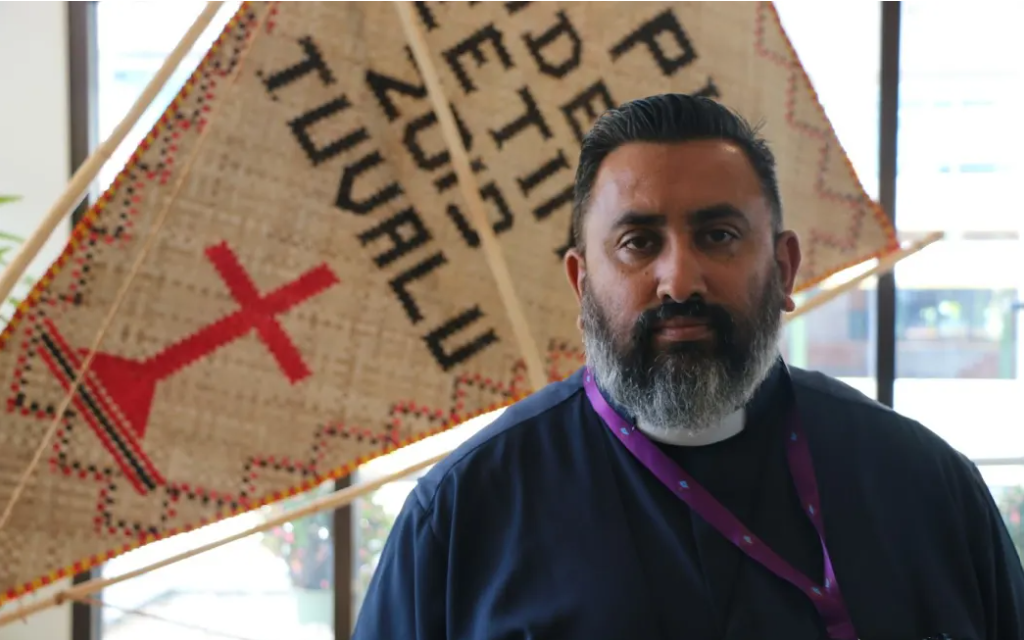The leader of the Pacific Conference of Churches (PCC) says a landmark climate ruling from the world’s top court is a significant win, but much more work is needed.
The International Court of Justice (IJC) found last wekk that countries can be held legally responsible for their greenhouse gas emissions.
The advisory opinion also said failing to protect people from the effects of climate change could potentially violate international law.
PCC secretary-general Reverend James Bhagwan spoke to Pacific Waves about the decision, alongside Green Party MP Teanau Tuiono. Tuiono is the Green’s Pacific People’s spokesperson.
Rev Bhagwan said the decision was a much-needed win for the region and climate advocates.
“This really is about shifting things from a moral duty to a legal obligation,” he said.
“This is a really important step forward, considering that COP (Conference of Parties) after COP we fail to get the words that we need in statements; we fail to get real movement on climate financing [and] real action on mitigation.”
The ICJ’s opinion delivered in the Hague on 24 July was the culmination of six years of advocacy and diplomatic manoeuvring which started with a group of Pacific university students in 2019.
Vanuatu led the charge at an international level and was backed by other Pacific nations.
Rev Bhagwan urged advocates across the Pacific to use the ruling to advance the climate ambitions of their own countries and governments.
“There is a lot of opportunities for us to work on the issues of so-called sustainable development, which are not really sustainable,” he said.
“I think this is the challenge that we need to start pressuring all of our countries to pay attention to the advisory opinion and prepare ourselves for how we can actually make use of the opinion in a legal way as well.”
Tuiono said the ruling did not bode well for the New Zealand government’s track record on climate change.
He said Aotearoa needed to listen to its fellow Pacific nations to truly address climate change.
“New Zealand is part of the Pacific. We are part of a family of Pacific nations,” he said.
“In order for us to truly recognise that, [we have to] actually listen to the voices – particularly these young people – who have taken this all the way to the ICJ and have gotten the highest recognition.”
Tuiono said the decision added weight to the work of climate advocates across different industries and areas. He believed it could provide a framework for pushing for change.
“I think that…it has enormous moral weight and has enormous legal weight…because it actually gives us guidelines, it gives us guard rails in… how we should be approaching things.
“And I think states will be paying attention in terms of what their obligations [and] what their responsibilities are.”



